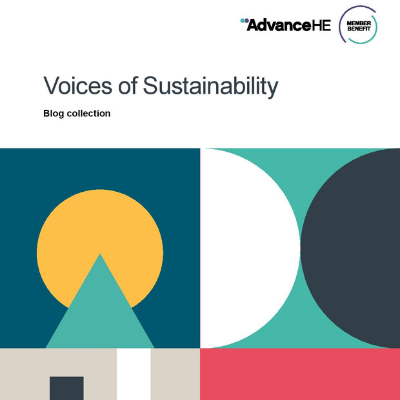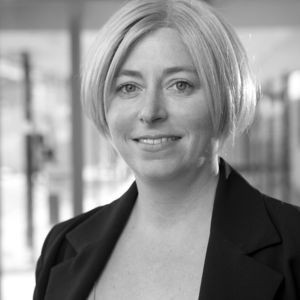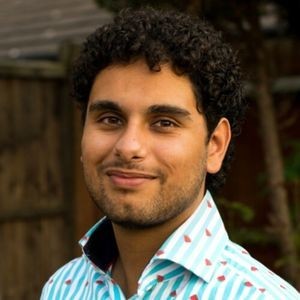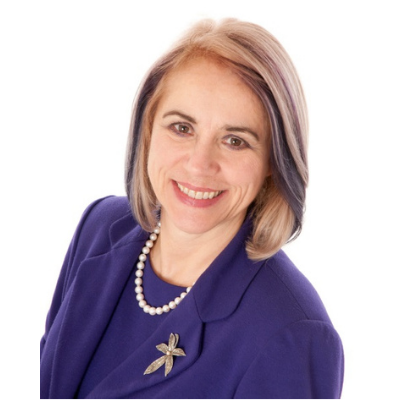Voices of sustainability
The ‘Voices of Sustainability Blog Collection’ from Advance HE is intended to address the theme title ‘Sustainability for Everyone: Here and Now’. The blog collection elicits the experiences and ideas of a range of individuals and communities and is intended to provide some deliberately diverse perspectives.
Our very own Fiona Goodwin - Director of Operations and Planning at EAUC, Manveer Gill - Student Climate Commissioner and Professor Joy Carter - VC at University of Winchester and Climate Commissioner share perspectives of sustainability in higher and further education and their contributions can be accessed below:
Fiona Goodwin, Director of Operations and Planning for EAUC – the Alliance for Sustainability Leadership in Education:
What does sustainability mean to you and how does your photo depict this? The picture is a pair of hyacinth macaws that I took back in 2004 when I was in the Pantanal in Brazil whilst travelling in South America. Hyacinth macaws are classified as vulnerable and their biggest threats are habitat loss (they rely on the manduvi tree) and capture for the pet trade due to their calm natures. They mate for life. When I took this picture there were about 30 macaws on one tree. It was the only tree left in a cleared part of the forest. For me this illustrates the shear destruction humans cause around the world, damaging our forests and killing our animals. Sustainability to me means living within our means and treating nature with respect. Humans rely on all of the other animals we live together with. From the ants to the spiders to the macaws. Macaws distribute seeds, these provides new saplings for the forest and homes to so many more species. We are damaging our world and people need to realise how much we rely on it for our very own survival.
Why is sustainability important to you?
I have been lucky enough to travel to many countries to see wildlife and so many times it is through the impact of humans that you see the most destructive effects. A baby orangutan that has accidently left the reserve and was quite used to be clutching to the driver of the moped which took him back to the reserve is always a memory I have. The impact of palm oil in Borneo, as well as many other Southeast Asian countries, is truly breathtaking in the worse sense. But there are always nuggets of hope and meeting passionate people who are really making a difference – both in their local communities and the wider world. Mr Ambrose was such a person. He worked on a palm oil plantation. The company that was clearing the area for more planting realised the proboscis monkeys were becoming more of a problem. So they decided to keep a corner of the forest for the monkeys. Mr Ambrose was put in charge of looking after this small but essential reserve after becoming more interested in their behaviour. It turns out proboscis monkeys are a fan of pancakes which they got a taste for when stealing the palm oil workers lunch boxes. Mr Ambrose is now considered by WWF to be the best expert on proboscis monkeys. Whilst there is much to despair in the world and so many stories of destruction and more and more animals becoming endangered, I always remember Mr Ambrose’s smile whilst feeding pancakes to those proboscis monkeys.
How should higher education institutions teach about sustainability so that it is inclusive and relevant to everyone?
Sustainability needs to cover all areas of curriculum – from primary to higher education. Children need to understand our reliance on the earth and the animals we share our home with. The Sustainable Development Goals (SDG) are an excellent framework to ensure a just transition and that no one is left behind. EAUC pioneer those institutions that are taking innovative steps through the SDG Accord. The young people of today will be the very ones that will have to face the problems of a changing climate and they need to have the tools and skills to do this. This isn’t a problem that is going to go away. Climate change is happening now.
What other ideas or concerns do you have about sustainability and about how students and staff in higher education institutions and research institutes can ‘do better’ in making progress with sustainability? It is important that universities and colleges take their role in society and their communities seriously. Sustainability should be at the heart of every decision. Institutions need to take climate action and we are proud of the Global Climate Letter for Universities and Colleges where institutions can show their commitment to becoming net-zero well before 2050. Students need to keep their institutions held to account and want to see the progress towards these targets – no more greenwashing. Students can also take action through their own actions but also working with their university or college, co-creation of strategies and solutions is the only way to ensure the best possible result. By bringing together the skills, experience and passion of students and staff, now that can be the real game changer. 2021 is the year to take action as we are hosting COP26 – the spotlight is going to be shining on the UK, on education and on our young people.
Manveer Gill, Project Officer, CDP and Student Climate Commissioner:
What does sustainability mean to you and how does your photo depict this?
I have chosen the city of Matera in Southern Italy as my picture depicting sustainability. Within the city complex of cave dwellings, as late as 1950, disease and poverty were rampant, and entire families lived in single roomed caves without running water or electricity, and with their livestock. These conditions led to the Italian government relocating the entire population in 1952, abandoning Matera and unintentionally isolating families in the process. Now a UNESCO World Heritage site, this city is just one example of the need for everyone to have good standards of living – a value at the heart of social sustainability, as well as the difficulties faced by individuals striving for that.
Why is sustainability important to you?
If we do not strive for sustainability, we are saying that we are fine with the citizens of the future coming into a degraded world, a world where they have less control over the decisions they make. That does not sit right with me, and I am sure it doesn’t for most people. A sustainable future requires an appreciation of the different, interconnected facets of sustainability – social, environmental and economic – to be acted on by the institutions around us. When some of those institutions and broader governing mechanisms are not doing what we need them to, then something needs to change.
How should higher education institutions teach about sustainability so that it is inclusive and relevant to everyone?
I think HE institutions need to look long and hard at their curricula, with a view to the future. That means no longer teaching courses that will be redundant in the future and ensuring that they sufficiently train their staff to be able to teach about sustainability. If we want inclusivity, then I would suggest co-collaboration of curricula with students, as well as actively seeking participation from minority stakeholders. Additionally, it is important that institutions are aware of the colonial nature of their curricula and sources of funding and seek advice to diversify and decolonise their work. None of these suggestions can take place overnight, nor is anyone asking that they should. A good first step is to publicly acknowledge that change is needed.
What other ideas or concerns do you have about sustainability and about how students and staff in higher education institutions and research institutes can ‘do better’ in making progress with sustainability?
In order for us to determine whether or not an institution is taking material steps towards sustainability and if they are acting in line with any pledges they have made, we need them to be transparent about their progress. Without transparency and disclosure, students cannot readily hold their institutions to account. Whether they are at the beginning of their sustainability journey or they are already established leaders, there is an opportunity to pioneer change, and to be vocal about it. For institutional leaders that want to know how they can advance the sustainability agenda and respond to the climate crisis, the Climate Commission’s HE Climate Action Toolkit is a must read.
Professor Joy Carter Vice-Chancellor of University of Winchester and Climate Commissioner:
What does sustainability mean to you and how does your photo depict this? At the University of Winchester, we say that to us, sustainability means living in harmony, acting with kindness, and caring for the planet and all living things, now and for future generations. The photo illustrates the attitudes we need in a sustainable world.
Why is sustainability important to you?
I believe the greatest challenge facing the planet is the climate and ecological crisis. We are living through hugely challenging times; but if the coronavirus is like a storm battering the planet, there is every danger that the full impact of climate change will feel like a tsunami. As the university for sustainability and social justice, Winchester is committed to contributing to a sustainable future and making a positive environmental impact.
How should higher education institutions teach about sustainability so that it is inclusive and relevant to everyone?
Sustainability and social responsibility is embedded across our teaching and other activities at Winchester, as demonstrated by achieving the National Union of Students’ Responsible Futures accreditation. Through our Climate Change Education Strategy, we ensure our students graduate with an understanding of how climate change is relevant to their subject area and their everyday lives. It spans the formal curriculum (teaching, learning and assessment), informal curriculum (on campus and community activities) and subliminal curriculum (organisational policies and practices – for example, our free reusable coffee mugs that all first year students receive). The United Nations 17 Sustainable Development Goals provide the agenda for action in all three areas.
What other ideas or concerns do you have about sustainability and about how students and staff in higher education institutions and research institutes can ‘do better’ in making progress with sustainability?
A poll of Generation Z undertaken for the University of Winchester found that 54% believe the climate crisis is the most important issue of the day and a majority said they believe the government is handling the crisis poorly. Tackling the climate emergency requires a revolution in everything we do and that includes universities. The good news is that the generation of students coming into our campuses are ready for this kind of action. As universities, we must urgently broaden our thinking about how we prepare and educate future generations for the worsening climate crisis. As leaders in education and research, universities are in a unique position to become catalysts for real and lasting change. We must move away from small-scale mitigation efforts to reduce carbon emissions and think on a larger scale about how we can radically rethink teaching and research. We should take inspiration from the deep adaptation movement, which, inspired by the work of Professor Jem Bendell, is clear that society needs to urgently prepare itself for the worst possible outcomes of climate change. This is the kind of pragmatic, realistic leadership that we need to follow.
The complete blog collection can be accessed here.
Our very own Fiona Goodwin - Director of Operations and Planning at EAUC, Manveer Gill - Student Climate Commissioner and Professor Joy Carter - VC at University of Winchester and Climate Commissioner share perspectives of sustainability in higher and further education and their contributions can be accessed below:
Fiona Goodwin, Director of Operations and Planning for EAUC – the Alliance for Sustainability Leadership in Education:
What does sustainability mean to you and how does your photo depict this? The picture is a pair of hyacinth macaws that I took back in 2004 when I was in the Pantanal in Brazil whilst travelling in South America. Hyacinth macaws are classified as vulnerable and their biggest threats are habitat loss (they rely on the manduvi tree) and capture for the pet trade due to their calm natures. They mate for life. When I took this picture there were about 30 macaws on one tree. It was the only tree left in a cleared part of the forest. For me this illustrates the shear destruction humans cause around the world, damaging our forests and killing our animals. Sustainability to me means living within our means and treating nature with respect. Humans rely on all of the other animals we live together with. From the ants to the spiders to the macaws. Macaws distribute seeds, these provides new saplings for the forest and homes to so many more species. We are damaging our world and people need to realise how much we rely on it for our very own survival.
Why is sustainability important to you?
I have been lucky enough to travel to many countries to see wildlife and so many times it is through the impact of humans that you see the most destructive effects. A baby orangutan that has accidently left the reserve and was quite used to be clutching to the driver of the moped which took him back to the reserve is always a memory I have. The impact of palm oil in Borneo, as well as many other Southeast Asian countries, is truly breathtaking in the worse sense. But there are always nuggets of hope and meeting passionate people who are really making a difference – both in their local communities and the wider world. Mr Ambrose was such a person. He worked on a palm oil plantation. The company that was clearing the area for more planting realised the proboscis monkeys were becoming more of a problem. So they decided to keep a corner of the forest for the monkeys. Mr Ambrose was put in charge of looking after this small but essential reserve after becoming more interested in their behaviour. It turns out proboscis monkeys are a fan of pancakes which they got a taste for when stealing the palm oil workers lunch boxes. Mr Ambrose is now considered by WWF to be the best expert on proboscis monkeys. Whilst there is much to despair in the world and so many stories of destruction and more and more animals becoming endangered, I always remember Mr Ambrose’s smile whilst feeding pancakes to those proboscis monkeys.
How should higher education institutions teach about sustainability so that it is inclusive and relevant to everyone?
Sustainability needs to cover all areas of curriculum – from primary to higher education. Children need to understand our reliance on the earth and the animals we share our home with. The Sustainable Development Goals (SDG) are an excellent framework to ensure a just transition and that no one is left behind. EAUC pioneer those institutions that are taking innovative steps through the SDG Accord. The young people of today will be the very ones that will have to face the problems of a changing climate and they need to have the tools and skills to do this. This isn’t a problem that is going to go away. Climate change is happening now.
What other ideas or concerns do you have about sustainability and about how students and staff in higher education institutions and research institutes can ‘do better’ in making progress with sustainability? It is important that universities and colleges take their role in society and their communities seriously. Sustainability should be at the heart of every decision. Institutions need to take climate action and we are proud of the Global Climate Letter for Universities and Colleges where institutions can show their commitment to becoming net-zero well before 2050. Students need to keep their institutions held to account and want to see the progress towards these targets – no more greenwashing. Students can also take action through their own actions but also working with their university or college, co-creation of strategies and solutions is the only way to ensure the best possible result. By bringing together the skills, experience and passion of students and staff, now that can be the real game changer. 2021 is the year to take action as we are hosting COP26 – the spotlight is going to be shining on the UK, on education and on our young people.
Manveer Gill, Project Officer, CDP and Student Climate Commissioner:
What does sustainability mean to you and how does your photo depict this?
I have chosen the city of Matera in Southern Italy as my picture depicting sustainability. Within the city complex of cave dwellings, as late as 1950, disease and poverty were rampant, and entire families lived in single roomed caves without running water or electricity, and with their livestock. These conditions led to the Italian government relocating the entire population in 1952, abandoning Matera and unintentionally isolating families in the process. Now a UNESCO World Heritage site, this city is just one example of the need for everyone to have good standards of living – a value at the heart of social sustainability, as well as the difficulties faced by individuals striving for that.
Why is sustainability important to you?
If we do not strive for sustainability, we are saying that we are fine with the citizens of the future coming into a degraded world, a world where they have less control over the decisions they make. That does not sit right with me, and I am sure it doesn’t for most people. A sustainable future requires an appreciation of the different, interconnected facets of sustainability – social, environmental and economic – to be acted on by the institutions around us. When some of those institutions and broader governing mechanisms are not doing what we need them to, then something needs to change.
How should higher education institutions teach about sustainability so that it is inclusive and relevant to everyone?
I think HE institutions need to look long and hard at their curricula, with a view to the future. That means no longer teaching courses that will be redundant in the future and ensuring that they sufficiently train their staff to be able to teach about sustainability. If we want inclusivity, then I would suggest co-collaboration of curricula with students, as well as actively seeking participation from minority stakeholders. Additionally, it is important that institutions are aware of the colonial nature of their curricula and sources of funding and seek advice to diversify and decolonise their work. None of these suggestions can take place overnight, nor is anyone asking that they should. A good first step is to publicly acknowledge that change is needed.
What other ideas or concerns do you have about sustainability and about how students and staff in higher education institutions and research institutes can ‘do better’ in making progress with sustainability?
In order for us to determine whether or not an institution is taking material steps towards sustainability and if they are acting in line with any pledges they have made, we need them to be transparent about their progress. Without transparency and disclosure, students cannot readily hold their institutions to account. Whether they are at the beginning of their sustainability journey or they are already established leaders, there is an opportunity to pioneer change, and to be vocal about it. For institutional leaders that want to know how they can advance the sustainability agenda and respond to the climate crisis, the Climate Commission’s HE Climate Action Toolkit is a must read.
Professor Joy Carter Vice-Chancellor of University of Winchester and Climate Commissioner:
What does sustainability mean to you and how does your photo depict this? At the University of Winchester, we say that to us, sustainability means living in harmony, acting with kindness, and caring for the planet and all living things, now and for future generations. The photo illustrates the attitudes we need in a sustainable world.
Why is sustainability important to you?
I believe the greatest challenge facing the planet is the climate and ecological crisis. We are living through hugely challenging times; but if the coronavirus is like a storm battering the planet, there is every danger that the full impact of climate change will feel like a tsunami. As the university for sustainability and social justice, Winchester is committed to contributing to a sustainable future and making a positive environmental impact.
How should higher education institutions teach about sustainability so that it is inclusive and relevant to everyone?
Sustainability and social responsibility is embedded across our teaching and other activities at Winchester, as demonstrated by achieving the National Union of Students’ Responsible Futures accreditation. Through our Climate Change Education Strategy, we ensure our students graduate with an understanding of how climate change is relevant to their subject area and their everyday lives. It spans the formal curriculum (teaching, learning and assessment), informal curriculum (on campus and community activities) and subliminal curriculum (organisational policies and practices – for example, our free reusable coffee mugs that all first year students receive). The United Nations 17 Sustainable Development Goals provide the agenda for action in all three areas.
What other ideas or concerns do you have about sustainability and about how students and staff in higher education institutions and research institutes can ‘do better’ in making progress with sustainability?
A poll of Generation Z undertaken for the University of Winchester found that 54% believe the climate crisis is the most important issue of the day and a majority said they believe the government is handling the crisis poorly. Tackling the climate emergency requires a revolution in everything we do and that includes universities. The good news is that the generation of students coming into our campuses are ready for this kind of action. As universities, we must urgently broaden our thinking about how we prepare and educate future generations for the worsening climate crisis. As leaders in education and research, universities are in a unique position to become catalysts for real and lasting change. We must move away from small-scale mitigation efforts to reduce carbon emissions and think on a larger scale about how we can radically rethink teaching and research. We should take inspiration from the deep adaptation movement, which, inspired by the work of Professor Jem Bendell, is clear that society needs to urgently prepare itself for the worst possible outcomes of climate change. This is the kind of pragmatic, realistic leadership that we need to follow.
The complete blog collection can be accessed here.














